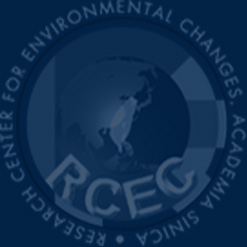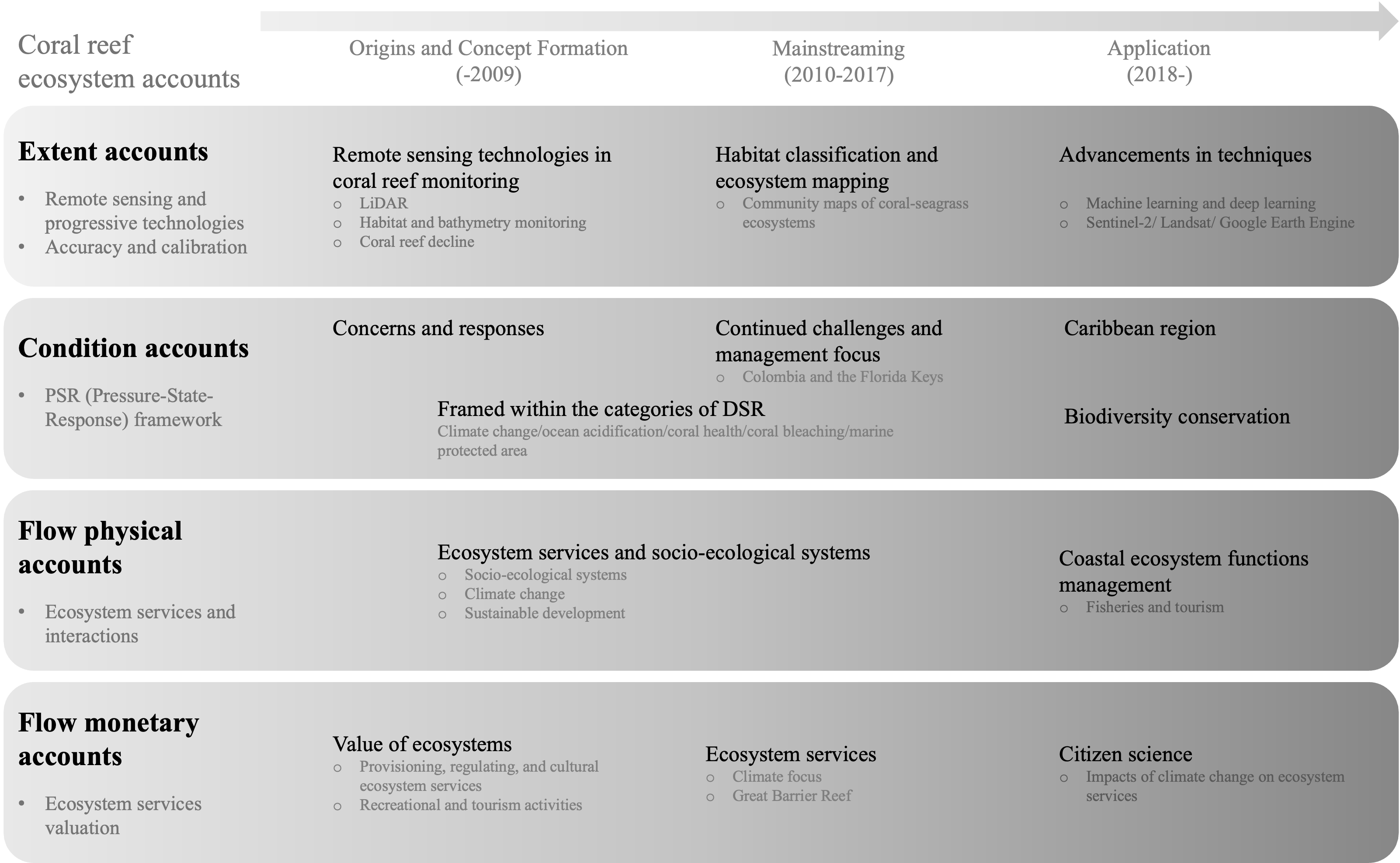


Evolution of coral reef ecosystem service research under SEEA framework. The study highlights how existing coral reef research can be integrated into the SEEA framework. It traces the research evolution through three phases: the Origin and Conceptual Formation period (~2009), which laid the groundwork; the Mainstream period (2010-2017), which introduced empirical evidence and case studies; and the Application period (2018), which emphasized interdisciplinary approaches for practical conservation.
Abstract
Coral reefs are among the most diverse and valuable ecosystems on the planet, providing numerous benefits to human societies, including fisheries, coastal protection, and biodiversity conservation. In order to effectively manage and conserve coral reefs, it is essential to understand the value of the ecosystem services they provide. The System of Environmental-Economic Accounting (SEEA) framework offers a comprehensive approach for accounting for ecosystem services, which can be useful for assessing the value of natural environments. While the validity of SEEA for many marine ecosystems is increasingly acknowledged, there remains a scarcity of studies that have investigated SEEA in the context of coral reef ecosystems. To bridge this gap, this study offers extensive examination and investigates the evolution of coral reef ecosystem service research under the SEEA framework in over nearly three decades, providing a rich dataset for understanding trends and gaps. The research findings reveal interdisciplinary methodological integration in coral reef ecosystem research, incorporating remote sensing, environmental science, ecology, environmental economics, ecological economics, computer science, and citizen science. Across different time periods, within the shared focus of coral reef health and sustainability, there has been a transition from concerns about the impacts of human activities to a concentration on climate change, supported by empirical evidence and case studies. These research results contribute to our better understanding of the value of coral reef ecosystems.
Main Outcomes
The innovation of this study lies in its novel integration of existing coral reef research within the SEEA framework, demonstrating how this integration enhances the management and implementation of ecosystem services. The study contributes in three key ways: It captures important components and the evolution of coral reef ecosystem research spanning nearly three decades across three distinct phases. It also reveals how these elements collectively contribute to more effective ecosystem service management under the SEEA framework. Additionally, it provides a dataset of 649 eligible documents for discerning trends and identifying gaps. The study also illustrates how integrating coral reef research into the SEEA framework enhances its implementation. This integration highlights the importance of advancing tools and methodologies, improving the understanding of ecological and socio-economic dynamics, and incorporating diverse case studies.
Key points
More information